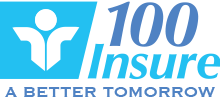If you’re under 65 and already on Medicare, there may be a lot more Medicare benefits for you than you ever imagined.
If you are under the age of 65, you can be eligible for Medicare if:
- You’ve received Social Security Disability Insurance checks for at least 24 months.
- OR you’ve been diagnosed with End-Stage Renal Disease (ESDR)
- OR you have Lou Gehrig’s disease (amyotrophic lateral sclerosis, or ALS)
If you’re in category 1
If you have been receiving Social Security checks for at least 24 consecutive months, you will be automatically enrolled in Medicare Part A and Part B on the 25th month. Social Security—not Medicare—makes the determination of whether you qualify for SSDI checks and administers the program that provides the checks.
For those who are in category 2
You may qualify for ESRD Medicare if you are getting dialysis treatments or have had a kidney transplant, AND:
- Are eligible to receive SSDI
- Are eligible to receive Railroad Retirement benefits
- Have paid Medicare taxes for a sufficient amount of time as specified by the Social Security Administration. (This can be by you, a spouse, or a parent)
If you are eligible for ESRD Medicare, you can enroll in Parts A and B together at any time. Part A will be retroactive up to 12 months, but it cannot start earlier than the first month you were eligible for ESRD Medicare.
For those who fall into category 3
If you are diagnosed with Lou Gehrig’s disease, you’re automatically enrolled in Medicare the same month that your disability benefits start.
Many people think they are only eligible for Medicare when they turn 65, but there are many people who are entitled to benefits under the age of 65, who don’t know they qualify for these benefits.
That’s right, incredible benefits such as:
- Premiums starting at $0 per month
- Coverage for copays and deductibles
- Prescription drugs
- Dental
- Vision
- Hearing
- And transportation to the doctor and pharmacy
One way to know if you qualify for these benefits – and many others – is to take our quiz. This will ask a few questions to give you an idea of whether or not you are missing out on benefits you are eligible for.






